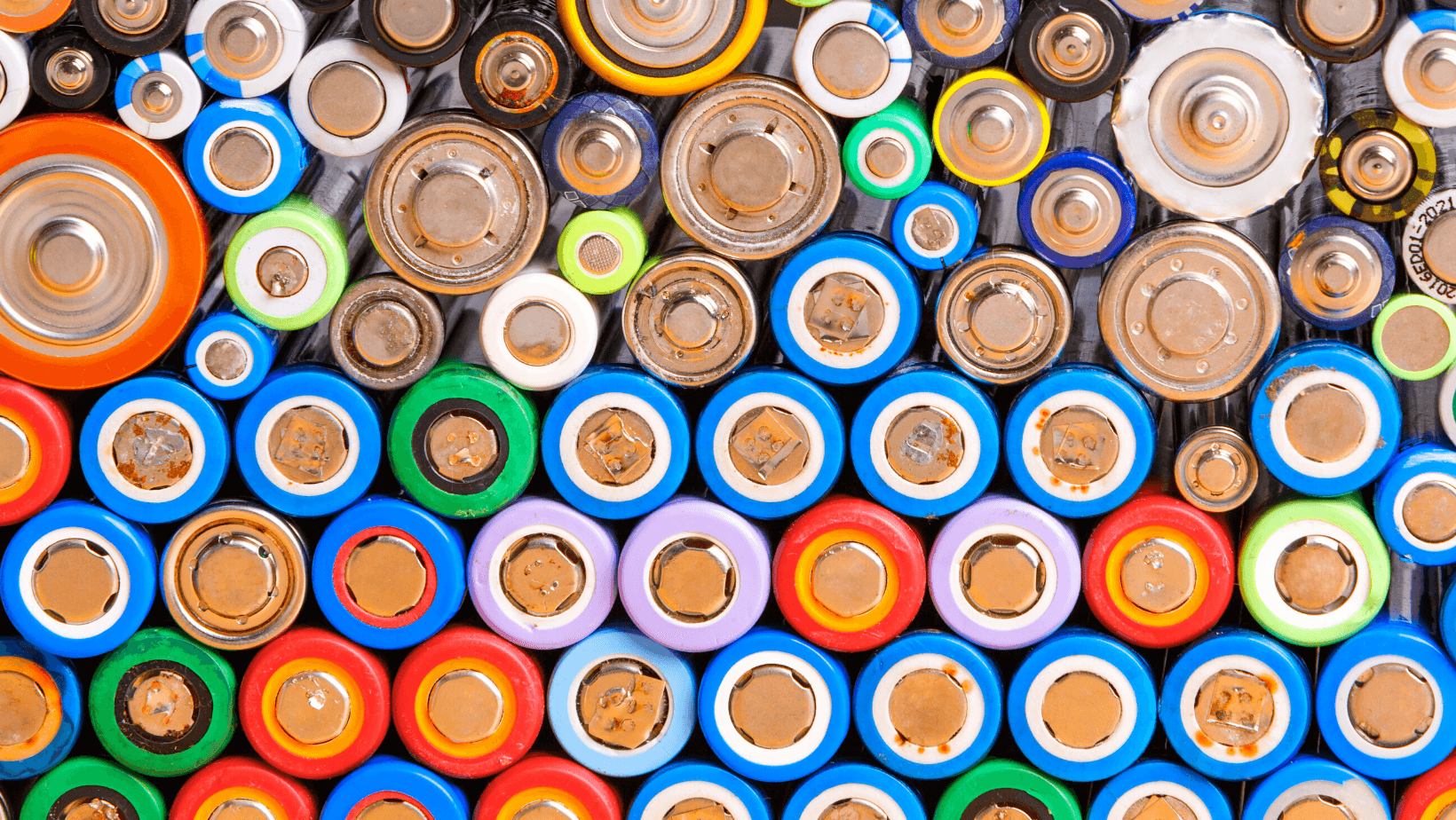
The work of batteries is quite thankless. After all, we mostly note their existence when they're failing - like when our laptops run out of juice in the middle of an important presentation or when we sit down for an indulgent evening of TV and realize that the remote needs new AAAs.
While we may not celebrate their magic (AKA, chemistry) often, batteries give us freedom and flexibility by making wireless technology possible. Without them, we'd be tied up in an endless knot of power cables, unable to bring our battery-operated devices (like smartphones, laptops, TV remotes, speakers, you name it...) anywhere beyond the reach of an extension cord. So, what do we need to know about them and their impact on people and the planet?
1) How do batteries work?
Every battery that you use (whether it's disposable like those AAA batteries in your TV remote or rechargeable like your smartphone battery) is powered by chemistry. A battery by definition is a device that stores chemical energy and converts it into electricity. But...how does it work? Let's flashback to high school chem class. Remember anodes and cathodes? How about electrolytes? Every battery has two terminals (the anode and the cathode) and the electrolyte, which separates those terminals. When electricity flows, the chemical on the anode releases electrons to the cathode, which accepts the electrons. To balance this flow of electrons, ions flow through the electrolyte that's in the middle of the terminals. This chemical reaction creates an electrical current...also known as the electricity that powers our electronics. Watch this video to learn more:
2 ) Why do I keep hearing about lithium-ion batteries?
We can't talk about batteries without acknowledging the lithium-ion battery. If any battery is trending, this is it. Why? They're the rechargeable batteries that are already used in our laptops and smartphones and are in high demand for use in electric vehicles and the world's electrical grids. They've become so popular because they're more efficient and have a higher energy density than other batteries. They're in such high demand that the lithium-ion battery market is expected to grow from $30 billion in 2017 to $100 billion in 2025. Wowza.
3) Why are lithium-ion batteries, put simply, bad for people and the planet?
Unfortunately, the process of extracting lithium and cobalt, the raw materials required to make lithium-ion batteries, is problematic. It is incredibly energy and water-intensive, and mining these metals produces hazardous pollutants that leach into the environment and cause health concerns in nearby communities. Smelting, the process required to extract metals from ore, also produces harmful air pollutants like sulfur oxide and lead. These pollutants can cause negative health impacts, particularly for those who live and work near smelters and mines.
On top of the environmental and health consequences, the mining of raw materials for batteries is also associated with unsafe working conditions. The world gets 70% of its cobalt from Congo, where miners dig hundreds of feet underground by hand. With few safety measures in place, death and injuries are common, as is child labor. It's an awful reality that powers so much of our lives. The human cost of cobalt is a result of corporate greed, but also obscure supply chains. When companies have difficulty tracing their supply chains (or where materials are coming from), they have less control over the working conditions people are exposed to. So, as cobalt demand (for the creation of lithium-ion batteries) increases, so will these concerns. However, the Washington Post found that tracing the path of cobalt from the mine to the end-product is possible. Some companies are committing to treating cobalt as a conflict material, requiring supply-chain audits and risk assessments. It's not a necessary condition that people, including children, be put at risk for the mining of this material.
4) Are other batteries, put simply, bad for the environment?
Yup. Bad news... the sourcing of rare earth metals for other types of batteries (like those AAAs in your remote), is problematic for many of the same reasons.
5) Which type of battery is better for the environment: rechargeable or disposable?
As with most sustainability-related questions, there isn't a perfect answer here since the results depend on the impact category being assessed (for example climate change impact vs. energy demand impact vs. human toxicity impact). However, this study found that overall, the use of rechargeable batteries was found to be less harmful to the environment than disposable batteries when used in high-consumption devices, like cameras, flashlights, and electronic toys.
6) How are batteries good for people and the planet?
The fact that batteries can enable us to slowly move away from our reliance on fossil fuels is a huge environmental win. In the US, most of our fossil fuel use is for transportation. Lithium-ion batteries, specifically, are key in our ability to transition to renewable energy by allowing us to store energy generated by renewable sources for longer periods of time - sans fossil fuels. In fact, the increased demand for renewable energy (and shift from coal-dependent, fossil fuels), using new, exciting technologies like lithium-ion batteries, is encouraging the energy transition.
7) What kind of batteries should I choose?
The reality is that the mining industry is rife with environmental and human health problems and we, as consumers, can't do all that much at this point in time since it's difficult for us to trace the minerals in our electronics. The best thing you can do is choose rechargeable over disposable batteries when you can, and once they're dead, recycle them.
8) Where can I recycle my batteries and electronics?
Earth911 has an awesome resource through which you can find battery recycling facilities near you. Just click here to type in your zip code and the type of battery or electronic you're looking to recycle.
